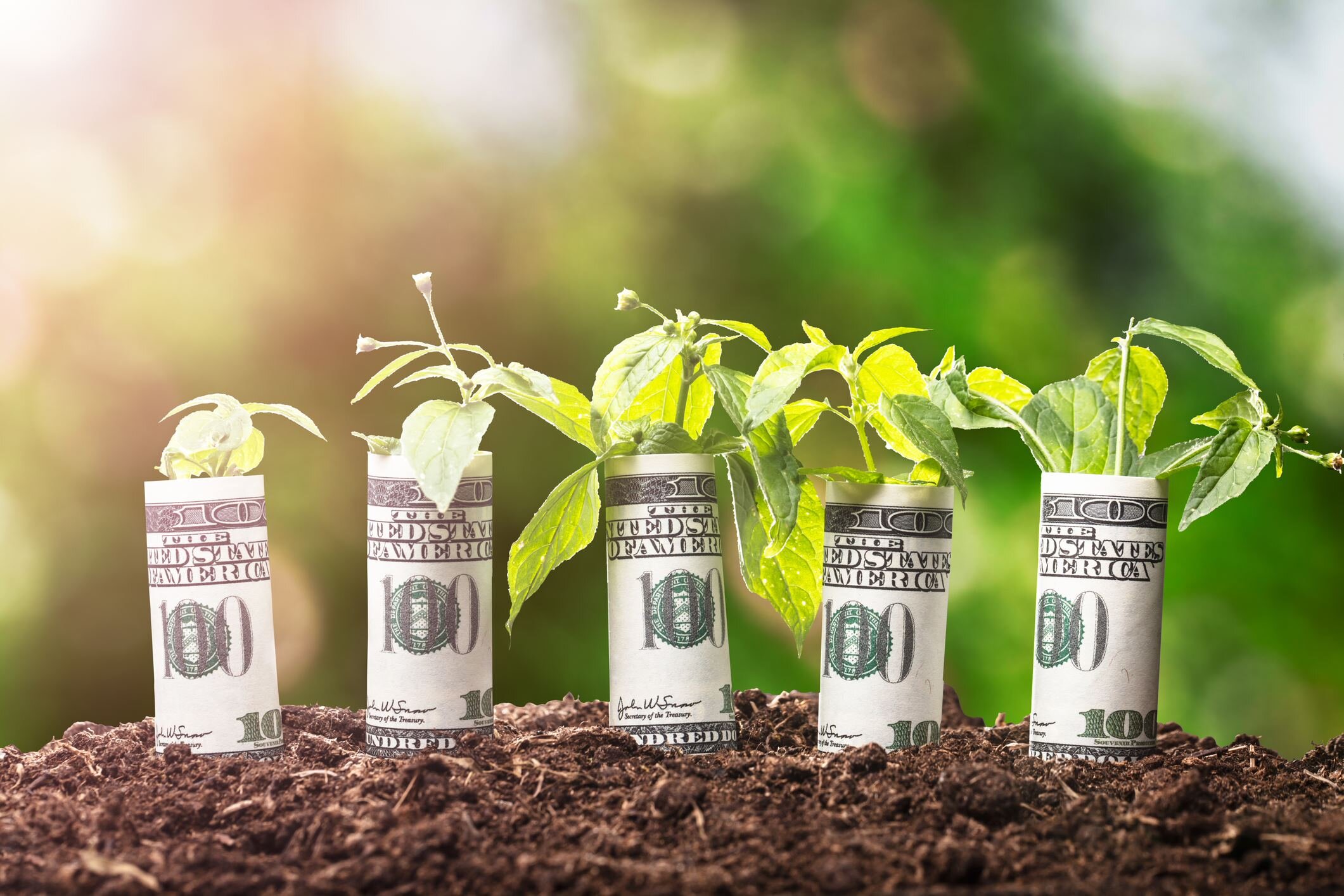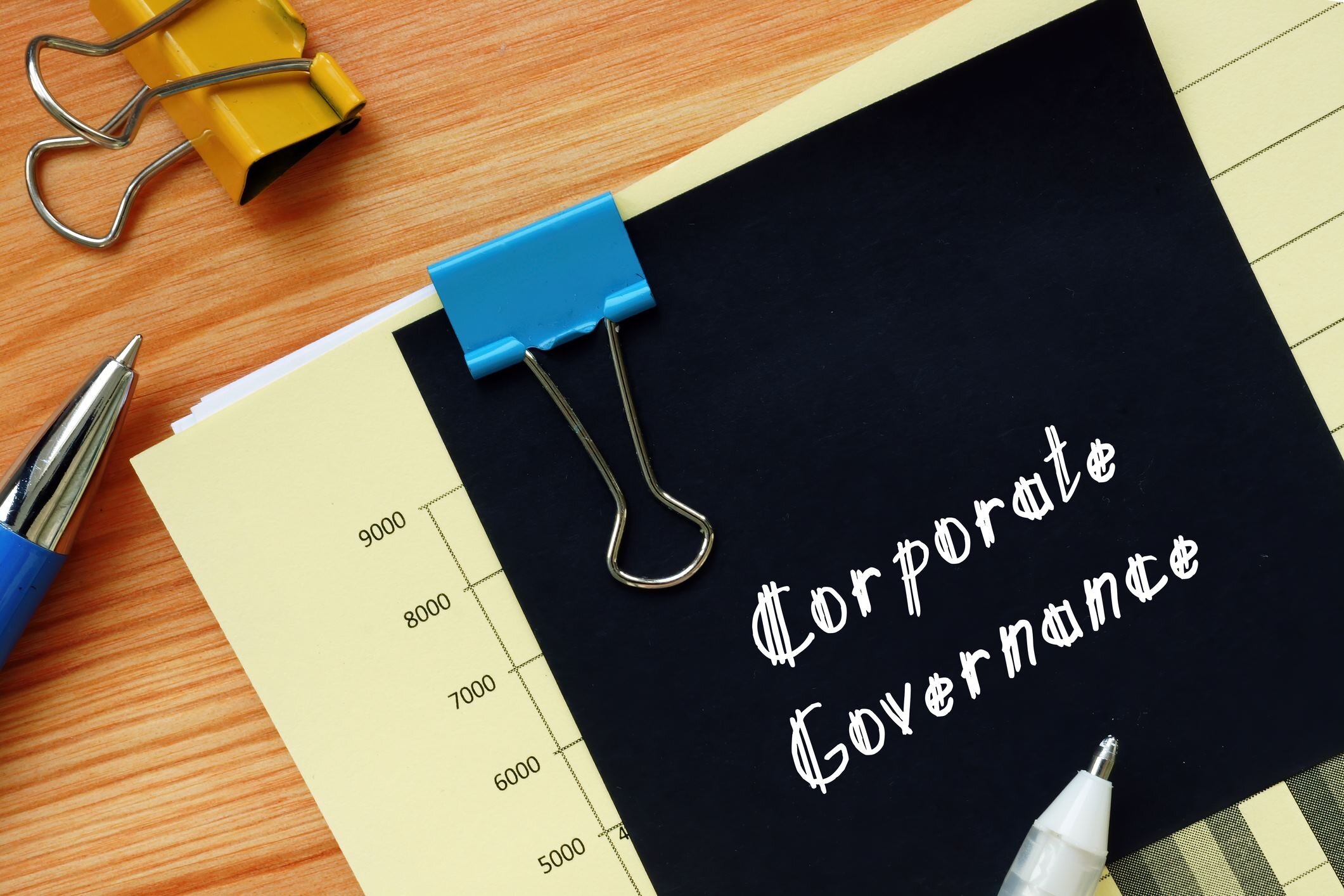Risk Advisory in the Renewable Energy Sector
Three of six GCC countries have announced net-zero commitments As of August 2022, three out of six GCC countries have published targets for net-zero...
8 min read
Johnny Kollin
:
07 June 2021 19:13:00 GST

Environment, Social, and Governance (ESG) was first coined as a term used to describe factors, drivers, and issues that can be integrated into capital markets. In January 2004, former U.N. Secretary-General Kofi Annan invited 50 CEOs of major financial institutions to elaborate on integrating ESG factors into their respective sectors as part of a conference organized jointly by the U.N. Global Compact, the International Finance Corporation, and the Swiss Government. (UNEP Finance Initiative, 2004) A year later, the initiative resulted in the production of the conference report Who Cares Wins.
In parallel, the Asset Management Working Group of the United Nations Environment Programme Finance Initiative (UNEP FI) issued the so-called Freshfields Report – a legal framework for integrating environmental, social and governance issues into institutional investments.
These two reports later formed the foundation for the Principles for Responsible Investment (PRI) in 2006, as explained by Georg Kell in his 2018 Forbes article titled The Remarkable Rise of ESG.
The public’s interest in ESG has varied since the term was coined. Considering Google search interest as a proxy, the term has gained significantly higher interest, particularly over the last two to three years, as illustrated in the graph below.

Norwegian Bank DNB Sees Increased ESG Interest
The increase in Google search activity related to ESG aligns with the views of Kjerstin Braathen, Group CEO of DNB Group. DNB Group’s total assets amounted to more than NOK 3,444 billion (USD 386 billion) as of 30 June 2020, making it the largest financial services group in Norway, and one of the largest in the Nordic region.
At the Nasdaq Oslo ESG Summit 2020, held in the third quarter of 2020, Braathen explained the interest in ESG factors has gone from non-existent to being part of virtually all executive discussions in a few years. While it is easy to get lost in fancy words, “at the end it is about creating value for all stakeholders and society at large, including motivating employees”, said Braathen.

Kjerstin R. Braathen, © Stig B. Fiksdal / DNB. Published under Creative Commons Attribution No Derivatives 4.0 International License (no changes made).
Environmental factors – the ‘E’ in ESG – have received perhaps most of the attention in both the financial services sector (particularly within the field of risk management) and investor communities. As regulation has evolved and investor interest has increased, many financial services firms have developed “green” financial instruments to meet the growing investor demand. In 2019, the green bond marked reached a record issuance volume of USD 255 billion – an increase of 51% compared to 2018, according to the Climate Bonds Initiative (2020).
Most of the investor community’s interest has remained focused on environmental factors. In 2019 the Climate Bonds Initiative commissioned a survey of 48 of the largest Europe-based fixed income asset managers. Two-thirds of the respondents in the Green Bond European Investor Survey said they have only bought green bonds. In contrast, only a third said they have also bought other forms of socially responsible investments, mainly so-called sustainability bonds.
Climate-related issues also dominated The World Economic Forum (WEF) Global Risks Report 2020, which was issued only weeks before COVID-19 turned into a global pandemic. All the top-5 risks identified in terms of likelihood, and 3 of the top-5 risks in terms of impact, are environmental-related.
ESG factors are gaining increased attention from not only investors but also corporates. 29 of the top 50 companies in the U.S. increased their environmental disclosures in their SEC filings as of September 2020 compared to the prior year, said Thomas Fekete, EMEA Head of BlackRock Sustainable Investing Strategy and Products, at the Nasdaq Oslo ESG Summit 2020. Those corporations that fail to catch up may see a narrowing range of funding sources and increased funding costs as asset managers tighten their investment policies.
In July 2020, BlackRock published an update on its approach to sustainability. BlackRock revealed it had identified 244 companies in its portfolio in the first seven months of 2020, in which the asset manager deemed management was “making insufficient progress integrating climate risks into their business models or disclosures.”
“Our approach on climate issues, in particular, is to focus our efforts on sectors and companies where climate change poses the greatest material risk to our clients’ investments.” (BlackRock)
Of these companies, BlackRock actively voted against 53 (22%) companies on climate issues and placed the remaining 191 companies “on watch”. (BlackRock, 2020) BlackRock is the world’s largest asset manager with USD 7 trillion of assets under management. In addition to the reputational risk posed for the relevant companies, they also risk becoming excluded from large investor bases.
At the ESG Summit 2020, Jan Erik Saugestad, CEO of Storebrand Asset Management with NOK 800 billion (USD 90 billion) of assets under management, reiterated Storebrand’s commitment to becoming fossil fuel-free. Furthermore, he elaborated on the group’s new “lobby criteria”, which was introduced as part of the change in Storebrand’s climate strategy, announced in August 2020. Its new lobby criteria mean it has begun divesting “from companies that are actively working against what needs to be done to reach the Paris agreement,” according to Saugestad. As a result, Storebrand sold its investments in ExxonMobil, Chevron and German chemicals group BASF in 2020. Elaborating on the rationale behind this decision, Saugestad interestingly mentioned it is driven by the view that those companies pose an unacceptable level of both transition and financial risk.
Meanwhile, DNB Group has incorporated ESG assessment criteria into all industry strategies, equity investments, and all credit applications above NOK8 million said Braathen. Moreover, DNB Group has committed to contribute a total of NOK 450 billion (USD 50 billion) to the financing of renewable energy and infrastructure.
BlackRock, Storebrand, and DNB are by no means alone in having tightened their climate strategies in 2020. Other examples include the National Employment Savings Trust (NEST), the U.K.’s biggest pension fund with GBP12 billion (USD 16 billion) of assets under management. In July 2020, NEST said it would begin divesting from fossil fuels. A month later major Australian insurer Suncorp said it had strengthened its guidelines on fossil fuel and sensitive sectors. That resulted in a decision to “not directly invest in, finance or underwrite new thermal coal mining projects or electricity generation, or new oil and gas exploration or production.” The company plans to phase out existing exposures to the thermal coal sector and underwriting in the oil and gas sectors by 2025 and phase out its direct investments in oil and gas by 2040. (Suncorp, 2020).
At the beginning of 2020, the world started learning about the outbreak of a new virus in China, officially named the severe acute respiratory syndrome coronavirus 2 (SARS-CoV-2), which causes the coronavirus disease (COVID-19). (WHO, 2020a) As of 30 August 2020, an aggregate of nearly 25 million cases and 800,000 deaths related to COVID-19 have been reported, according to the WHO. The global pandemic has spotlighted shortcomings in global distribution chains and national strategies, particularly for healthcare products and food security and the importance of international cooperation on major health challenges.
In February 2020, several European Union (E.U.) countries, including France and Germany, imposed export bans on protective gear in contravention of the spirit of free movement of goods within the E.U., according to Reuters. Whilst individual countries condemned the actions, the E.U. Commission introduced further protectionist measures on 14 March 2020, when it used its powers under the Export Regulation to introduce the Regulation (E.U.) 402/2020. The new regulation requires exporters of specific personal protective equipment to obtain authorization.
The COVID-19 pandemic has also brought people’s attention to national food security strategies. For example, Swedish media, including the daily Svenska Dagbladet, has raised the question of whether Sweden’s estimated level of food self-sufficiency of 50% is sufficient. The country’s national food production is entirely self-sufficient only for three groceries – sugar, carrots, and cereal. (Kihlström, 2020) Instead, Sweden has been relying on the assumption that other E.U. countries remain solidary, according to Therese Frisell at Livsmedelsverket – the Swedish Food Agency – in an interview with Dagens industry – Sweden’s leading business daily newspaper. (Herin, 2020) The protectionist measures put in place by countries for certain goods in the spring of 2020 lead to the questioning of whether Sweden could rely on the assumed solidarity for its import of food in a crisis.

Fresh green cereal, grain in farmer’s hands. © Michal Bednarek
The global pandemic has further opened up discussions on how countries cooperate on international topics, e.g. a pandemic. Certain areas, including funding of the World Health Organization (WHO), have been challenged. In July 2020, U.S. President Donald Trump notified the U.N. and Congress of this intention to withdraw the U.S. from the WHO. Other areas, including cross-border cooperation of the development of a vaccine, appear to have worked better.
The ‘S’ in ESG has, and will, become more important as a response to the “new” challenges which the global pandemic has brought up, said Braathen at DNB Group. Fekete echoed Braathen’s view at the Nasdaq Oslo ESG Summit that climate has been the number one topic in sustainable investments. In January 2020, BlackRock signed the Climate Action 100+, an investor initiative representing over USD 40 trillion of assets collectively under management that drives companies to “take necessary action on climate change”. In addition to the environmental factors, going forwards, we will see a transition towards a greater focus on social factors, says Fekete.
In line with his peers, Storebrand’s CEO sees increased attention by socially conscious investors on initiatives that touch on several factor. One such example includes Storebrand’s focus on preventing deforestation. In an open letter dated 23 June 2020 addressed to H.E. Mr George Monteira Prata, Ambassador of Brazil to Norway, Storebrand and 33 other financial institutions (representing, in aggregate, USD 46 trillion of assets under management) raised their concerns about the increasing deforestation in Brazil. The letter raises concerns from an environmental perspective regarding the negative impact on meeting the Paris Climate Change Agreement targets. The letter also addresses social factors such as the impact on human rights of indigenous communities and governance factors, including its fiduciary duty to ensure the long-term interests (including financially) of its beneficiaries.
The view of Braathen, Fekete and Saugestad mirrors the data on net cash fund flows into sustainable funds seen in the first half-year of 2020. Net flows into sustainable funds in the U.S. alone reached a record level of USD 10.4 billion in the second quarter of 2020, taking the aggregate net inflow to USD20.9 billion in the first half-year of 2020. According to Morningstar, this compares to the previous annual record of USD21.4 billion in sustainable inflows set in 2019. (Hale, 2020)
“We are in an environment that is ripe for social bonds.” (Braathen)
We saw a similarly sharp increase in capital markets activity in 2020. Around USD 50 billion of social and sustainability bonds were issued in the first half-year of 2020 compared with USD 20 billion in the entire year of 2019, according to S&P Global Ratings (2020). In June 2020, S&P Global Ratings said it expects this trend to continue and for “social bonds to emerge as the fastest-growing segment of the sustainable debt market in 2020”. Meanwhile, the volume of green bond issuance decreased. With this increase in social bonds, it is clear that “we are in an environment that is ripe for social bonds” and that investors appreciate this opportunity to diversify into other sectors, according to Braathen.
In a comparative study published in July, TNS Kantar, commissioned by Vattenfall (a leading European energy company), carried out two surveys of more than seven thousand individuals each in Denmark, Finland, France, Germany, the Netherlands, Sweden, and the U.K. One of the most interesting aspects is that the first survey took place in December 2019, i.e., before the COVID-19 pandemic, while the follow-up study was concluded in June 2020, i.e., “after COVID-19”.

A row of wind turbines in south Sweden. © Mikael Damkier
In the study, Vattenfall concluded that respondents viewed climate change as the most pressing global issue in December 2019 (32%) and June 2020 (28%). There was a sharp increase in concerns about epidemics (from 6% to 20% of respondents listing it as the most pressing global issue). However, respondents still viewed climate change as the main challenge. (Vattenfall, 2020)
There is an increasing awareness of and engagement in ESG factors in the financial services sector and among investors. Environmental factors remained at the forefront of investors and the public at large during 2020. But the COVID-19 global pandemic has shed much-needed light on the importance of the other parts of ESG, too.
“The ‘ocean liners’ have started shifting their course. The question is: when will the people on the deck notice it?” (Johnny Kollin)
We are starting to see massive players on the capital markets slowly shifting their positions to consider ESG factors. These shifts of capital, coupled with increasing regulatory actions and inaugural sovereign green bond issuances in 2020 by countries like Sweden and Germany, are likely to begin reshaping the funding mix of companies and governments.
Those who snooze will lose.
Note: Johnny Kollin first published an earlier version of this article on LinkedIn on 5 September 2020.

Three of six GCC countries have announced net-zero commitments As of August 2022, three out of six GCC countries have published targets for net-zero...

The world faces a critical shortfall in climate adaptation finance, leaving economies, businesses, and communities exposed to escalating risks. This...

In 2020, the Financial Reporting Council (FRC) — the UK audit industry watchdog — found that a third of the sampled audits needed improvement or...